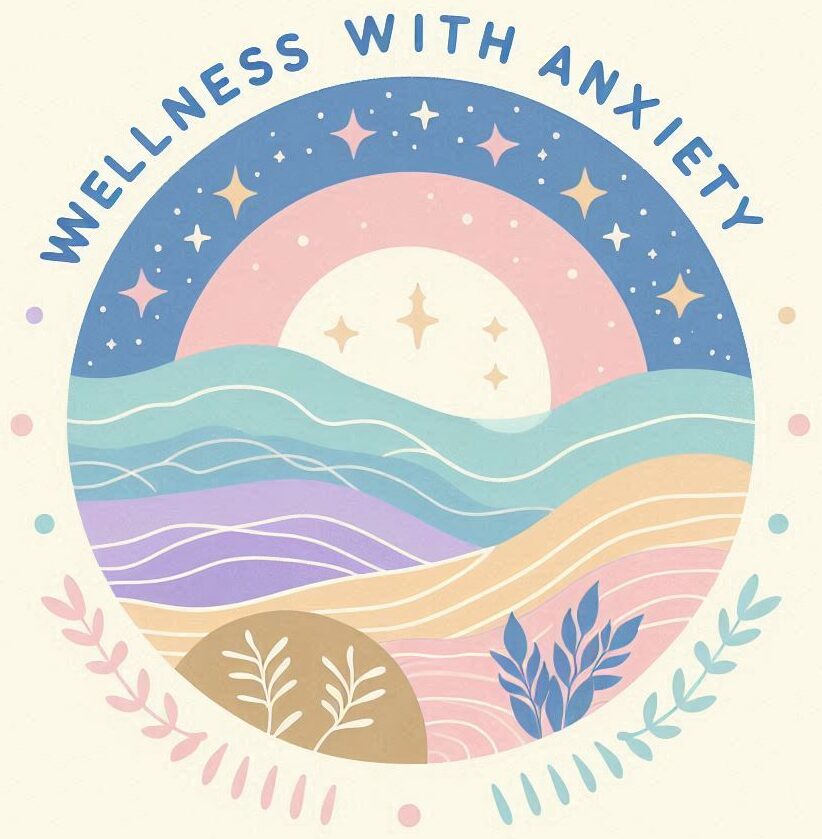 Anxiety’s a tricky beast, isn’t it? When both partners in a relationship experience it, the dynamics can shift in unexpected ways. So, what does anxiety look like, especially when it’s a shared part of your lives? Well, picture two people juggling their own sets of worries while also trying to support each other. Sounds challenging, right? It’s like each partner’s anxiety can sometimes be invisible to the other, yet it affects how you connect and understand each other every day.
Anxiety’s a tricky beast, isn’t it? When both partners in a relationship experience it, the dynamics can shift in unexpected ways. So, what does anxiety look like, especially when it’s a shared part of your lives? Well, picture two people juggling their own sets of worries while also trying to support each other. Sounds challenging, right? It’s like each partner’s anxiety can sometimes be invisible to the other, yet it affects how you connect and understand each other every day.
There are so many flavors of anxiety. Generalized anxiety disorder, social anxiety, panic disorders – they all bring their own unique challenges. When two people, drawn together by love or life’s circumstances, both experience different types or severities of anxiety, their relationship might feel like navigating a maze. You might find yourselves occasionally locked in your private worlds of concern and fear.
Ever wondered how common it is for couples to both have anxiety? It’s actually more prevalent than you’d think. Statistics show that mental health issues, including anxiety, are a regular part of many couples’ lives. That means you’re not alone. Take comfort knowing that many couples are in the same boat, learning to sail these stormy seas together.
Recognizing that anxiety doesn’t show up the same way for everyone is half the battle. One partner might become withdrawn, while the other becomes overly expressive or worried. Understanding these patterns, recognizing how each person shows stress, paves the way to better comprehension and empathy. It’s about knowing that your partner’s silent moments or anxious pacing are expressions of stress.
Navigating Emotional Needs: Communicating Effectively with Each Other
 Communication is key, right? Seems simple enough, but when anxiety’s part of your story, it adds layers. Making room for open conversations can transform your relationship. It’s like creating a safe haven where both of you feel heard, understood, and accepted.
Communication is key, right? Seems simple enough, but when anxiety’s part of your story, it adds layers. Making room for open conversations can transform your relationship. It’s like creating a safe haven where both of you feel heard, understood, and accepted.
Being a Supportive Listener
Active listening changes the game. When you focus on really hearing what your partner is saying, without jumping to conclusions or reactions, it opens up a world of understanding. It’s like putting on a pair of glasses that brings their world into clearer focus. Validating their feelings, saying things like, ‘I hear you’ or ‘That sounds really tough,’ can work wonders.
Building Respect by Setting Boundaries
Boundaries might sound restrictive, but they’re crucial for respect. It’s about knowing when and how to give and take space. This respects each person’s need for solitude or the desire to talk things through. These boundaries create room for personal breathing space while keeping you connected.
Intent vs. Impact: Clarifying Intentions and Reactions
Misunderstandings are bound to happen, right? When anxiety’s in the mix, clarifying intentions and reactions becomes all the more important. It’s helpful to remember that the intent might not match the impact. Being open about this can prevent situations from spiraling into unnecessary conflict.
Building effective communication is a continuous journey. Every discussion is a step forward in deepening your connection and boosting each other’s confidence. It’s like fortifying your relationship, one conversation at a time, offering pockets of peace amidst the chaos of anxiety.
Building Resilience Together: Coping Strategies for Partners with Anxiety
 In the whirlwind of daily life, finding that inner calm can seem impossible, right? But mindfulness practices can help you both stay grounded. Whether it’s a few minutes of meditation or just focusing on deep, steady breaths, these small moments can anchor you, bringing a bit of peace to the storm.
In the whirlwind of daily life, finding that inner calm can seem impossible, right? But mindfulness practices can help you both stay grounded. Whether it’s a few minutes of meditation or just focusing on deep, steady breaths, these small moments can anchor you, bringing a bit of peace to the storm.
Building Confidence and Resilience with Small Steps
Setting realistic goals is all about taking life one step at a time. When anxiety feels overwhelming, even small tasks can seem gigantic. Breaking them down makes them more manageable, and every little accomplishment builds confidence and resilience. It’s like stacking pebbles, one by one, to create a solid footing.
Learning with Self-Compassion
Self-compassion is about cutting yourselves some slack. We all have days when things don’t go as planned, and that’s okay. Encourage each other to embrace these imperfections, to learn from setbacks, and to keep moving forward. It’s about being kind to yourselves, even on the tough days.
The Balance Between Dependency & Support
It’s important to strike a balance between dependency and support in your relationship. A supportive partnership means being there for each other without over-relying on one another. This balance is what keeps your bond strong and healthy, allowing room for personal growth and shared togetherness.
Seeking External Support: When and How to Get Help
 Individual & Couples Therapy
Individual & Couples Therapy
Reaching out for support might feel daunting, but it’s a powerful step toward healing. Therapy offers a space for both individual and joint exploration of anxiety issues. Couples therapy can especially help you both learn tools to manage anxiety in ways that strengthen your relationship.
Support Networks
Networks of family and friends are also invaluable. Having a support network ensures you’re not navigating this journey alone. They can offer perspectives that you might not see when caught up in anxious thoughts, often providing comfort and advice.
Recognizing Triggers
It’s important to recognize triggers and know when it’s time to seek professional help. Whether it’s increased conflict, persistent sadness, or constant distress that doesn’t ease, these are signs it’s time to bring in a professional. They can guide you through the turbulence with expertise and understanding.
Online Resources
Don’t overlook the value of online resources and self-help tools. They offer help and support that can be accessed anytime. From guided meditation apps to anxiety management workshops, these tools can enrich your coping strategies.
Fostering a Positive Environment: Rebuilding Trust and Intimacy
 Creating emotional intimacy is like building a bridge. Every candid conversation, every shared moment of vulnerability, lays down the bricks. Prioritizing these connections can strengthen the invisible threads that bind your relationship together, especially when anxiety tries to unravel them.
Creating emotional intimacy is like building a bridge. Every candid conversation, every shared moment of vulnerability, lays down the bricks. Prioritizing these connections can strengthen the invisible threads that bind your relationship together, especially when anxiety tries to unravel them.
Commitment & Consistency
Rebuilding trust takes commitment. It’s about transparency, making clear promises, and following through. Trust grows with time and consistency, sewing the patches where anxiety might poke holes.
Bonding Over Shared Activities
Discovering shared activities brings a fresh breeze to your relationship. Simple joys, like evening walks, cooking together, or a favorite TV show, make space for fun amidst anxiety’s clouds. These routines reinforce your bond and create memories blankets you can wrap around yourselves when times get tough.
Celebrating the Small Wins
Small wins deserve celebration. Every little improvement, each time you face anxiety and come out on top, marks progress in bold letters. Taking the time to acknowledge these moments reinforces your resilience and builds a shared narrative of triumph.
